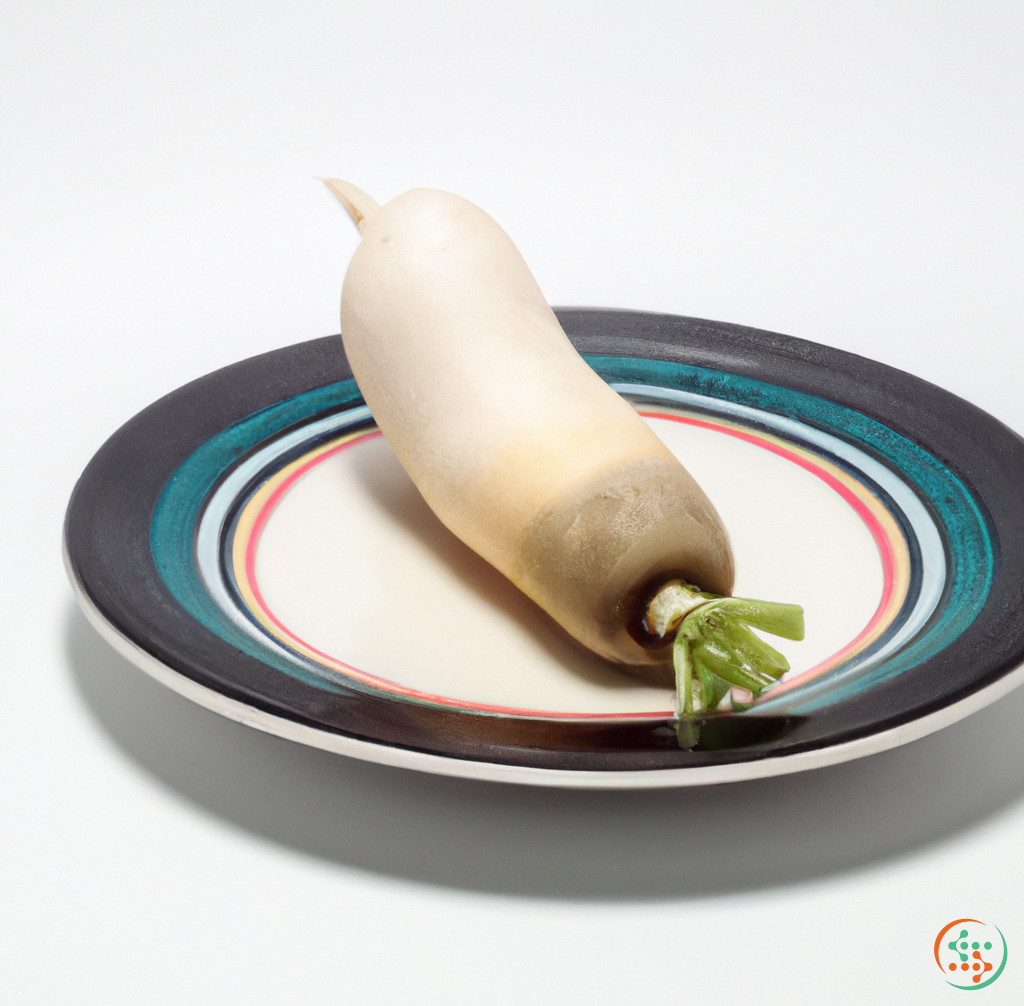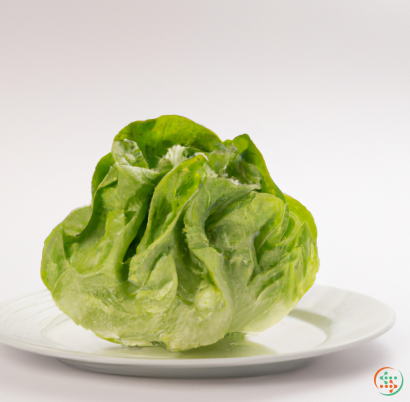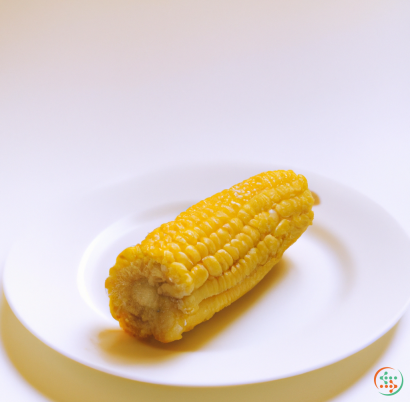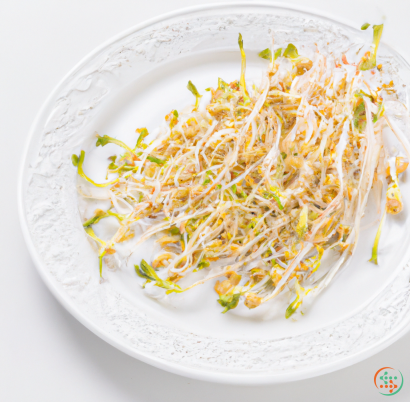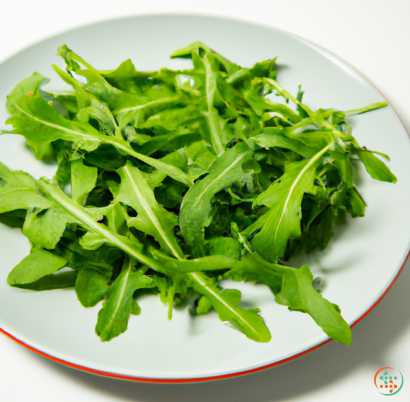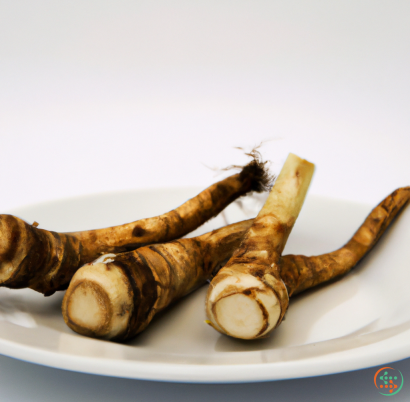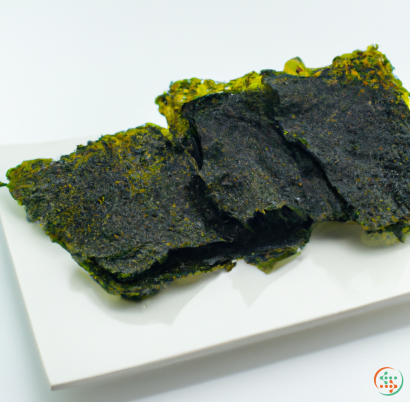Daikon
The daikon or Japanese radish is a widely cultivated root vegetable from the Brassicaceae family. It is widely used in many countries’ cuisine, including Japan and China. The daikon has a mild, slightly sweet flavor and is often served alongside other vegetables, pickled, shredded and eaten raw, or roasted and eaten as a side dish. Though it is most commonly found in East Asian cuisine, it is slowly becoming popular in Western countries as well.
The daikon is a root vegetable that looks similar to a white radish, but it is much longer and bigger in size and can grow up to six feet in length. Its white skin and crisp, juicy, sweet flesh make it highly sought after by cooks and chefs alike. The most popular variety of the daikon is the Mooli, which is the most common type in Asia. Other varieties include the Korean radish, the Chinese lo bok and the Indian pethayi.
The daikon is not only used in cooking but also has several medicinal benefits. A number of compounds contained in the daikon are known to be beneficial, most notably fiber and potassium. They can help reduce inflammation, lower blood pressure and balance blood sugar levels. Daikon may also help with digestion, reduce cholesterol and boost the immune system due to its high vitamin C content.
It is no surprise that, given these health benefits, daikon has been a part of traditional medicine in Japan and China for centuries. It is believed to have originated in China and made its way to Japan via the Silk Road. In Japan, it is referred to as “daikon” or “great root,” and is still commonly used as an ingredient in cooking, as well as for pickling, grating or juicing. It is also used to flavor sushi and sashimi, as well as in noodle dishes and salads.
Daikon is most commonly eaten raw, either grated or juiced, but it can also be cooked. Roasting is a popular way to prepare daikon, as it helps bring out its naturally sweet flavor. It can also be simmered in stews and soups, used in stir-fries, salads, or served pickled in vinegar. Daikon can also be used to make a nice side dish when served with a soy sauce-based sauce and sesame oil.
Due to its versatile nature, daikon can be a great addition to any diet. It is an excellent source of many essential vitamins and minerals, making it a healthy choice for one’s daily meals. Those looking for a bit of flavor can try adding daikon to salads, soups, sandwiches or the like. With its mild, sweet flavor and numerous health benefits, the daikon is a great choice for anyone looking to eat healthier and add more variety to their diet.
Daikon, or Japanese radish, has become a popular ingredient in many dishes around the world. Not only is it a delicious and affordable vegetable, it is also easy to find in most supermarkets. Even those unfamiliar with Daikon can easily recognize its long, white, carrot-shaped appearance. The scientific name for Daikon (Raphanus sativus var. longipinnatus) evokes its botanical origin as a Brassica rapa cultivar. The Chinese and Japanese have long appreciated the versatility of Daikon in their diets, however, many cultures around the world now consider Daikon to be an important part of their cuisine.
From Seed to Plate: The Journey of a Daikon
The journey of the Daikon from its humble origins as a tiny seed in the soil to its eventual sitting on a dinner plate at a festive gathering is an amazing and complex feat of plant reproduction and modern technology. The following is an exploration of the cultivation, genetics, transportation, harvesting, storage, and marketing of Daikon from inception to consumption.
Cultivation
The first step in the voyage of the Daikon is the transformation of a single seed into a mature plant. Botanists believe that the Japanese Radish, Raphanus sativus, was first domesticated in China around 3,000 years ago, eventually making its way to Japan and other parts of Asia. Modern Daikon seeds are produced by cross-breeding different varieties of Raphanus sativus to create hybrid cultivars with desired traits, such as size, shape, color, disease-resistance, and flesh texture.
For successful germination and growth, Daikon requires suitable soil, temperature, nutrients, and irrigation, as well as direct sunlight. Therefore, before planting, the soil must be tested and properly fertilized to assure optimal conditions. Once seedlings appear and form a good root system, they can be transplanted to a larger field.
Genetics
Genetic engineering is one of the most important and revolutionary advances in modern agriculture. In 2013, researchers at the National Institute of Agrobiological Sciences in Japan successfully manipulated the genes of Daikon to make a GMO (genetically modified organism). By inserting an artificial gene that induces root elongation and a gene that produces aroma compounds, these scientists were able to increase both the length and flavor of the Daikon. This process of genetic engineering has become an important tool for modern farmers, as well as a controversial topic in the media.
Transportation
Once the Daikon is safely out of the ground and into the waiting hands of the farmer, transportation to stores, restaurants, and local markets begins. Many times, large farms will package and ship the Daikon in special refrigerated containers via refrigerated trucks or by boat. This ensures that the Daikon is kept fresh and safe for consumption. On the other hand, some smaller farms may use traditional methods of transportation, such as horse-drawn carts or bicycles.
Harvesting
Daikon is typically harvested when the roots reach 33 to 42 centimeters in length. However, some farmers may harvest the Daikon earlier if they anticipate maturity within a few days. Upon arriving at a store or market, the Daikon is sorted, washed, and graded according to size and quality. Superior quality Daikon will then be placed in cardboard boxes or plastic bags, while lower quality Daikon may be used for animal feed.
Storage
For extended shelf-life, Daikon must be stored in a cool and dark environment to protect it from rising temperatures and moisture. One of the best ways to store Daikon is in latticed wooden crates that allow airflow around the roots. In addition, some stores may also offer vacuum-sealed packages that keep the Daikon fresh for longer periods of time.
Marketing
After a Daikon has been safely transported, harvested, and stored, it finally enters the marketing and retail end of the supply chain. Here the Daikon is packaged and labeled with prices, descriptions, and brand names according to regional preferences and marketing trends. Daikon is a versatile vegetable and can be marketed as a main course, side dish, appetizer, or even a condiment.
On the Dinner Plate
Finally, after an extended period of cultivation, transportation, harvesting, and marketing, the Daikon takes its rightful place as the star of the dinner plate. The meal may be a traditional, home-cooked Japanese delicacy or a contemporary western fusion dish. Whatever the course, the taste and texture of the welcomed Daikon will be sure to please all the lucky diners and the farmer alike.
Conclusion
The journey of Daikon from seed to plate is truly remarkable, exemplifying the collective efforts of botanists, farmers, logistic workers, and marketers. The final product is a versatile and delicious vegetable, enjoyed by both traditional and modern cultures around the world. No matter the size, shape, or recipe, Daikon is always a welcome feature at any dinner table.
| Vitamin K | 0.3 ug | |
| Vitamin C | 0.022 grams | |
| Vitamin B1 | 0.02 mg | |
| Vitamin B2 | 0.02 mg | |
| Vitamin B3 | 0.2 mg | |
| Vitamin B4 | 0.0073 grams | |
| Vitamin B5 | 0.14 mg | |
| Vitamin B6 | 0.05 mg | |
| Vitamin B9 | 0.028 mg |
| Calcium | 0.027 grams |
Daily Value 1.3 g
|
| Iron | 0.4 mg |
Daily Value 0.018 g
|
| Magnesium | 0.016 grams |
Daily Value 0.4 g
|
| Phosphorus | 0.023 grams |
Daily Value 1.25 g
|
| Potassium | 0.227 grams |
Daily Value 4.7 g
|
| Sodium | 0.021 grams |
Daily Value 2.3 g
|
| Zinc | 0.15 mg |
Daily Value 0.011 g
|
| Copper | 0.12 mg |
Daily Value 0.9 mg
|
| Manganese | 0.04 mg |
Daily Value 0.0023 g
|
| Selenium | 0.7 ug |
Daily Value 0.055 mg
|
| Tryptophan | 0.003 grams | |
| Threonine | 0.025 grams | |
| Isoleucine | 0.026 grams | |
| Leucine | 0.031 grams | |
| Lysine | 0.03 grams | |
| Methionine | 0.006 grams | |
| Cystine | 0.005 grams | |
| Phenylalanine | 0.02 grams | |
| Tyrosine | 0.011 grams | |
| Valine | 0.028 grams | |
| Arginine | 0.035 grams | |
| Histidine | 0.011 grams | |
| Alanine | 0.019 grams | |
| Aspartic Acid | 0.041 grams | |
| Glutamic Acid | 0.113 grams | |
| Glycine | 0.019 grams | |
| Proline | 0.015 grams | |
| Serine | 0.018 grams |
| Total Sugars | 2.5 grams |
per 100g
|
| Palmitic acid (16:0) | 0.03 grams |
|
| Total Saturated fatty acids: | 0.03 g | |
| Oleic acid (18:1) | 0.02 grams |
|
| Total Monounsaturated fatty acids: | 0.02 g | |
| Linolenic acid (18:3) | 0.03 grams |
|
| Linoleic acid (18:2) | 0.02 grams |
|
| Total Polyunsaturated fatty acids: | 0.05 g | |
